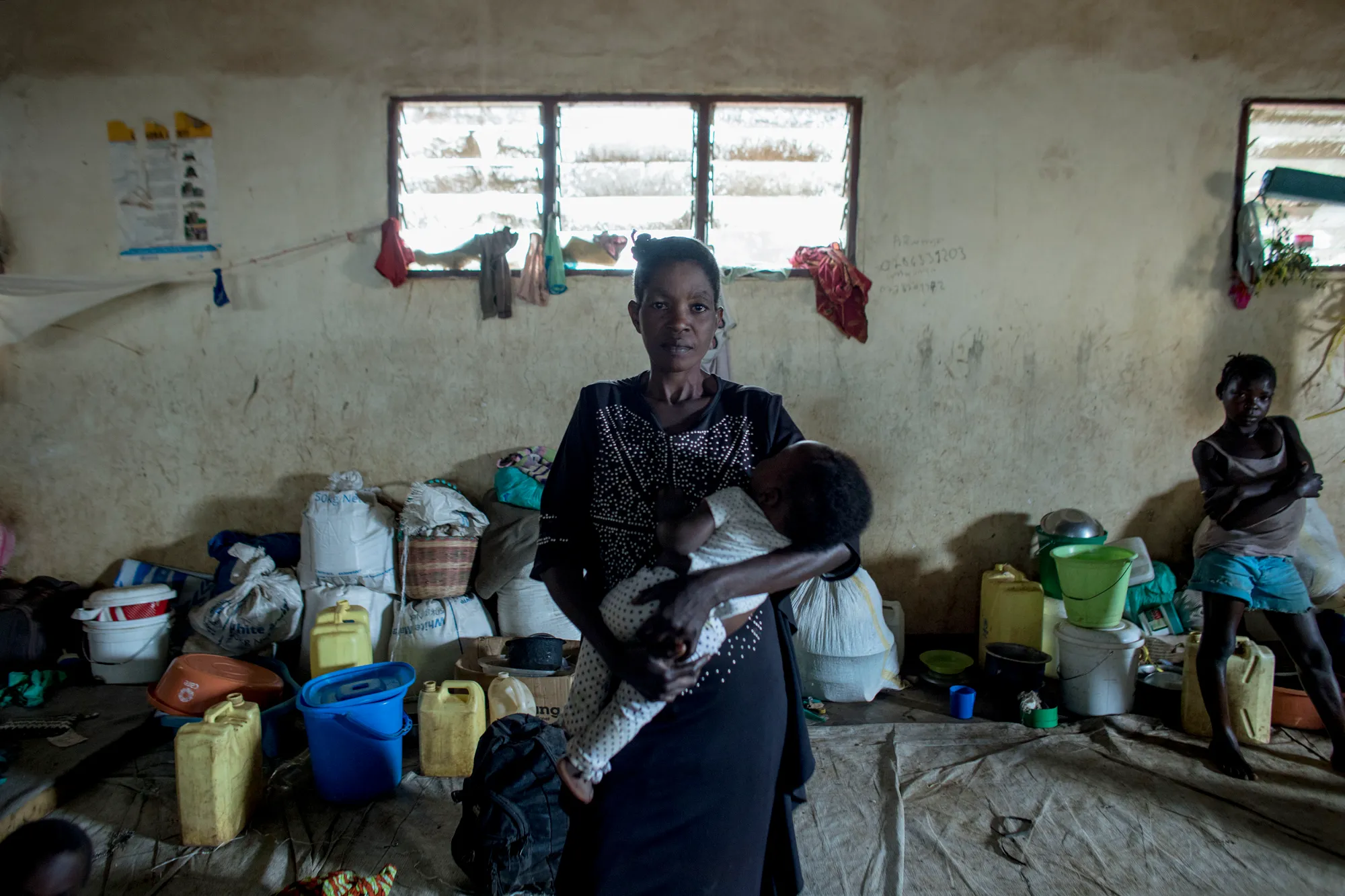Neema fled on foot with four of her children, hiding and sleeping in the bush to conceal themselves from potential attackers until they reached Lake Albert, which separates the DRC from Uganda.
“We had to run to the lake shore where we got a boat up to Kyakapere, where we stayed for two days. I was running to save my life, even running over dead bodies. We got another boat to Sebagoro where we stayed for a day. On the second day, they put us in a van that brought us here.”
During the journey, Neema was separated from one of her children, not uncommon for families making this journey. She feared her daughter would be killed along the way to Kyangwali, a refugee settlement in western Uganda.
Her daughter was found by another woman who helped her complete the journey alongside her own family. After they arrived at Kyangwali, Neema and her daughter were tearfully reunited.
“I explained everything that had happened and how I had cried for so long thinking my daughter had died,” Neema remembers. “I really thanked this woman that came and kept my child as hers.
What would give me peace is if I got a place to stay with my children. Also, if my children can get an education and I get to live a good life so that I am not able to remember the past situation of the war.”
Now, Neema lives temporarily in a dormitory with dozens of other families. She has been here for nearly a year. She hopes for a housing assignment soon, so her family can continue healing.
CARE assists Neema and her family with counseling and psychosocial support focused on survivors of conflict and violence against women and girls.

